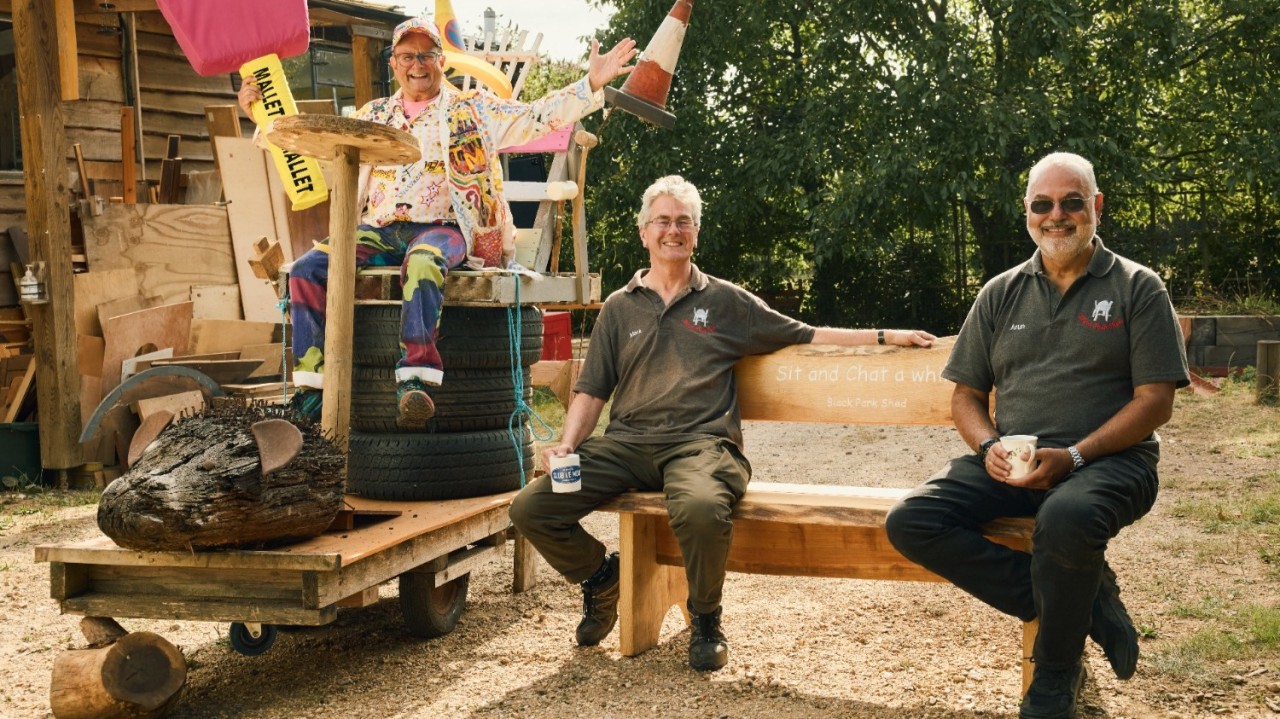For Diageo, tackling harmful drinking among older men isn’t just acting as a responsible corporate citizen, it’s a material business risk. Our work with DRINKiQ, Diageo’s responsible drinking platform, shows how addressing issues that sit at the intersection of corporate responsibility and consumer behaviour can create a positive impact for both the brand and society.
Public health data shows that men over 55 are more likely to drink more, and more frequently, than any other cohort. While their drinking patterns might not appear extreme, 29% of men aged 55–64 consume alcohol at levels considered ‘increasing risk.’[1]
This can be explained by life-stage and age-related factors such as retirement, empty-nesting and bereavement. Life changes that can create the conditions in which absence of meaning or mission correlates with higher likelihood of harmful alcohol consumption.
Acting on these insights, we brokered a partnership between DRINKiQ and the UK Men’s Sheds Association – a charity whose network of over 1,000 sheds across the UK provides men with creative and social spaces to make, repair, repurpose and, most importantly, connect. These community hubs have become a lifeline for thousands of men, offering purpose and companionship in equal measure.
Our aim was simple: to help foster connection, improve wellbeing and promote alcohol moderation among older men.
By bringing men together to work on shared projects, Men’s Sheds have become positive outlets that improve wellbeing and reduce social isolation – two key factors known to influence drinking behaviours. Furthermore, many Shed members have reported that being part of a Shed has helped them reflect on and even reduce their alcohol consumption[2].
Taking to the streets
We launched the partnership last year with our Men on a Mission campaign, calling on older men to make being well a mission, by having more open conversations about wellbeing and alcohol moderation.
We reached over 3 million people within our target cohort (those aged 55 and over) – surpassing reach targets by 33.6% and delivering 35.5% more impressions than anticipated. Offline, we secured standout print articles in national publications – helping us reach over-55s both on and offline.
Post campaign analysis showed that wellbeing and moderation messages struck a deeper chord when they came from someone close. This suggested that behaviour change among over-55 men would be best inspired through the encouragement and concern of loved ones, rather than direct appeals. We carried this learning into this year’s strategy.
In September we unveiled the second phase of this partnership – Mission: Shoulder to Shoulder. A campaign built to resonate with a general population audience, i.e. those perfectly poised to make a positive difference for an older man in their life. Because while older men have probably heard plenty of messages about alcohol moderation over their lifetime, they might not have had someone show them where change can truly begin, in connection, community, and the comfort of a Shed.
This year, Mission: Shoulder to Shoulder challenges Shedders across the UK to build and install unique buddy benches in their communities; bringing the power of connection from their work benches into shared spaces, where conversations can begin, shoulder to shoulder.
We partnered with 80s TV icon Timmy Mallett, who brought exactly what you’d expect: energy, pace, and plenty of laughs (which is always appreciated). Beyond the nostalgia, Timmy’s appeal spans both the men we’re trying to reach and those positioned to reach them (the 40-year-olds who grew up watching him alongside their 68-year-old dads.) It’s that cross-generational appeal that made him the perfect voice for this campaign.
We sparked national conversation, with Timmy as the spokesperson delivering news and feature interviews across high impact media outlets that over-indexed with our target audience including, BBC, The Sun, The Express and GB News. This was a key part of the strategy in reaching a group that’s less digitally native, ensuring the campaign showed up where it truly counts.
To further amplify our mission and connect with younger audiences who could then share the campaign with older men in their lives, we collaborated with content creators Liam & Nicci Linley, Dean Commodore, and Greg Penn. Creators were enlisted to build their own benches for local community partners, with content rolling out on Instagram in the lead up to Men’s Mental Health Awareness Month. This social activation helps to extend the campaign’s reach and celebrate the power of connection through shared experience.
Alongside engaging the general population, we’ve also connected with key policy stakeholders (policymakers, regulators, public health champions etc.) For this year’s Labour Party Conference, we developed a campaign animation video to show that lasting behaviour change doesn’t just come from policy, but from purpose and connection.
Beyond the campaign, we’ve continued creating space for conversations that can lead to real behaviour change. We launched a series of in-Shed alcohol moderation workshops, equipping Shed Leaders with tools to spark open conversations around wellbeing and drinking habits. Across in-person and online sessions, we’ve engaged Shedders across the country and received overwhelmingly positive feedback, with many saying they’ve already taken what they’ve learned back to their own Sheds, demonstrating the ripple effect of conversation and connection in action.
We’ve also brought Diageo employees on the journey, launching a volunteering programme with St Martin’s Shed in Lambeth, where employees lend their time to help members build benches for their local community — an experience that’s already inspired plans for further sessions through the end of the year.
Because whether it’s at a workbench, a buddy bench, or anywhere in between, the mission remains the same: to get older men talking, shoulder to shoulder.
